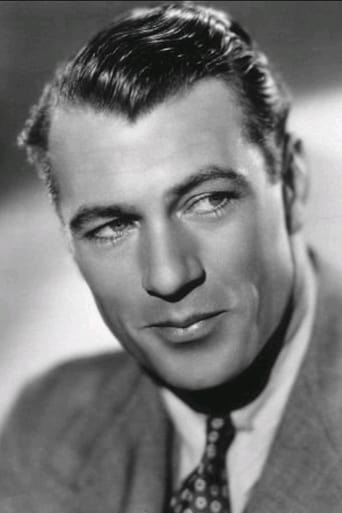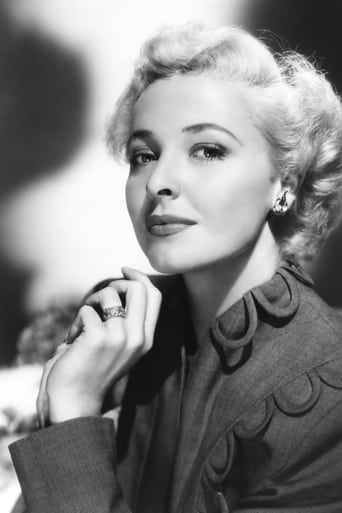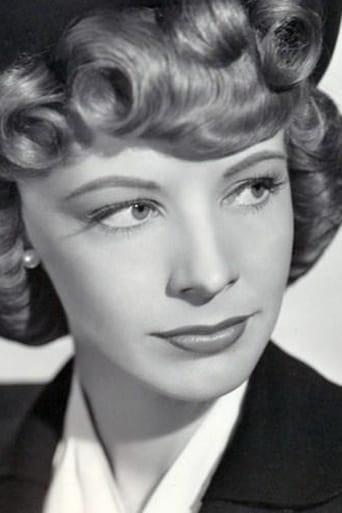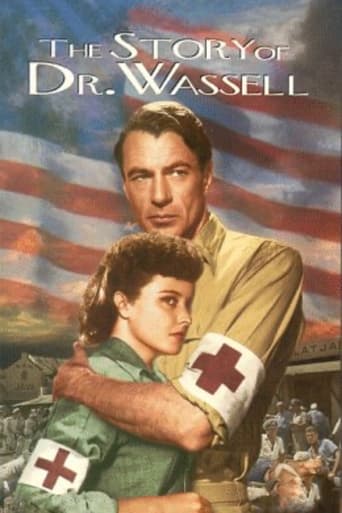
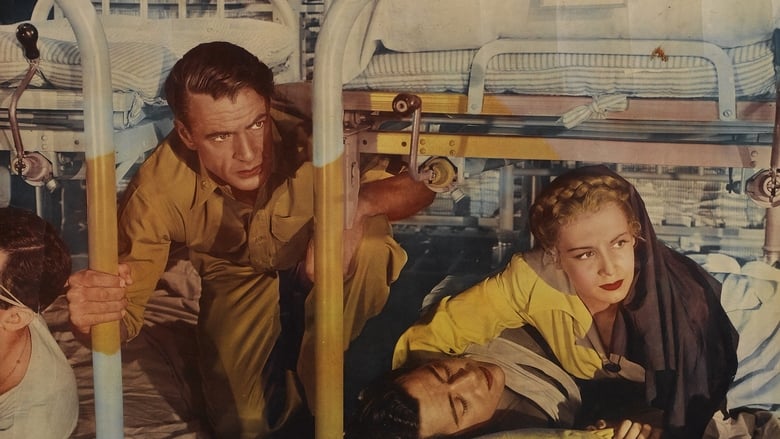
The Story of Dr. Wassell (1944)
As the Japanese sweep through the East Indies during World War II, Dr. Wassell is determined to escape from Java with some crewmen of the cruiser Marblehead. Based on a true story of how Dr. Wassell saved a dozen or so wounded sailors who were left behind when able bodied men were evacuated to Australia.
Watch Trailer
Cast


Reviews
Plenty to Like, Plenty to Dislike
A Major Disappointment
It’s not bad or unwatchable but despite the amplitude of the spectacle, the end result is underwhelming.
Watching it is like watching the spectacle of a class clown at their best: you laugh at their jokes, instigate their defiance, and "ooooh" when they get in trouble.
"The Story of Dr. Wassell" is an excellent film non-combatant war film. But there's still plenty of wartime action. It takes places in the Asian theater and South Pacific. It's the story of an Arkansas country doctor, Corydon Wassell, who went to China as a medical missionary in 1913. In 1936, he went on active duty with the U.S. Navy reserves, serving in the Far East. When World War II broke out, he was serving as medical officer for two destroyers that were lost off the coast of Java.This is a wonderful story of a different type of hero than the one who charges enemy positions. Wassell stays behind when the American forces on Java are ordered to evacuate. That is, all except the wounded who can't walk. So he's a hero of self-sacrifice and great love for his fellow man that he wouldn't leave his wounded men behind to be captured by the Japanese.This is a harrowing film at times, and at others times it has humor. It was based on interviews and recollections of many of the men, and of Dr. Wassell himself. His decision to stay behind with his men goes against his direct orders. Yet he finds one situation after another of being able to move his men to a port where they can be evacuated. Obviously, it has a happy ending. And when he is called to meet the admiral in Australia, he expects to get a lecture and maybe face a court marital. Instead, brass of all kinds are in the room waiting as they listen to a radio broadcast in which President Franklin Roosevelt tells of examples of American heroism, and the story he tells is that of Dr. Wassell.In the introduction to the film, Cecil B. DeMille is listening to that very broadcast. He says that that inspired him to make the movie about Dr. Wassell and his heroism. American author James Hilton wrote a novel shortly after Wassell's efforts made the news. Wassell served as an adviser for the movie.Wassell earned the Navy Cross for his actions. There is a gratuitous romance aspect in the film, but it's OK and fictitious. Wassell didn't mind it because his wife was back home during this time.The film was released on July 4, 1944, in theaters across the U.S. It was an obvious morale-builder. But before that, it had a premier showing on April 29, 1944 in Wassell's home time of Little Rock, AR.All of the roles are done well. As with some other war movies of the time, this one has one character who is over-the-top silly, clowning, etc. After a while that can grate on a person. It's OK to have someone like that — if there was in fact such a person. If not, I question his inclusion because it seems that he's pushing or forcing a lighter side in the film. I thought just one short scene was quite hokey and hard to believe. That was Wassell's standing before a huge Buddha in the jungle and asking Buddha to make the distant convoy sounds anything other than Japanese. If he was a medical missionary, he more likely might have said the Lord's Prayer, or prayed to God in some other way. Well, it may have happened that way, or it might have been a Hollywood insert with some specific intent in mind.This is a fine film about sacrifice and caring for one's fellow man in terrible times. And an excellent film for any war collection.
Looking for something to watch over Christmas i found a VHS that i had bought of this film 8 years ago which i hadnt gotten around to seeing.Well all i can say is that after watching it it will be at least another 8 years before it gets another viewing.It is difficult to understand how this film cost so much to produce when the sets at times look as cheap as those you would expect to see in an early TV production.The film plods on aimlessly for well over 2 hours which induced me to nod off from time to time.Coopers is the only worthwhile acting performance the rest are quite awful,matching script and direction.Also given the fact that they are supposed to be in Java where it is rather hot don't they ever sweat?De Mille is his usual overblown self in the prologue and also in the directors chair.Given the reprehensible way Hoppy acted towards the nurse i couldn't have cared less whether he survived.
If I hadn't paid attention to the opening credits, I never would have guessed that this was directed by Cecil B. DeMille. For years, I have disliked his films (particularly those made in the sound era)--mostly because his epics all seem to have cool special effects but also lag way behind the average film when it comes to characterizations. In other words, the films look good but often the dialog is silly and the characters very under-developed. However, unlike films such as THE TEN COMMANDMENTS or REAP THE WILD WIND, this one had a lot of heart and was an excellent picture in all respects. Sure, the special effects and cinematography were great (really great), but it didn't surprise me that the sets looked like Java--after all, it's DeMille. But for once, the supporting characters were rather three-dimensional and the only complaint I have about any of them is Loraine Day. Her character and how it was integrated into the plot didn't seem to work very well--but this is a very, very minor quibble.Gary Cooper plays the title character. He also starred in two other DeMille films, THE UNCONQUERED and NORTHWEST MOUNTED POLICE, though I think he was best in this film because his part was a little more subdued--creating a quiet strength instead of the usual macho hero (probably because Dr. Wassell was a real person). This doctor was one of the last to try to vacate Java when the Japanese invaded in 1942 and the film was intended as a propaganda piece to encourage Americans at home and abroad due to the heroism in the story. Along with Cooper is a fine ensemble cast of supporting characters. And, thankfully, these supporting characters generally were not just cardboard stereotypes--a definite plus over some other similar films from the period.All in all, it's an interesting film that's worth your time and an excellent example of the type of films DeMille could do had he chosen to focus more on people than special effects and spectacle.
This is an entertaining movie if somewhat dated ,still worth an occassional veiwing. Gary Cooper carries the film with a great performance showing him for the star he was. The cast is packed with good character actors and actresses,and is filmed in colour,based on a true story that De Mille heard on the radio as told by FDR. The story of how the doctor rescues some badly injured sailors in the Phillipines is told in a flagwaving way,with humor and tragedy side by side. One reveiwer asks about Hoppy a badly wounded soldier who is left stranded on the wrong side of a demolished bridge,the film shows the Japanese closing in on him and a nurse then they disapear. In C.B,deMILLES BIOGRAPHY he reveals that Hoppy did survive and at the end of the credits he told the film audience this fact.


